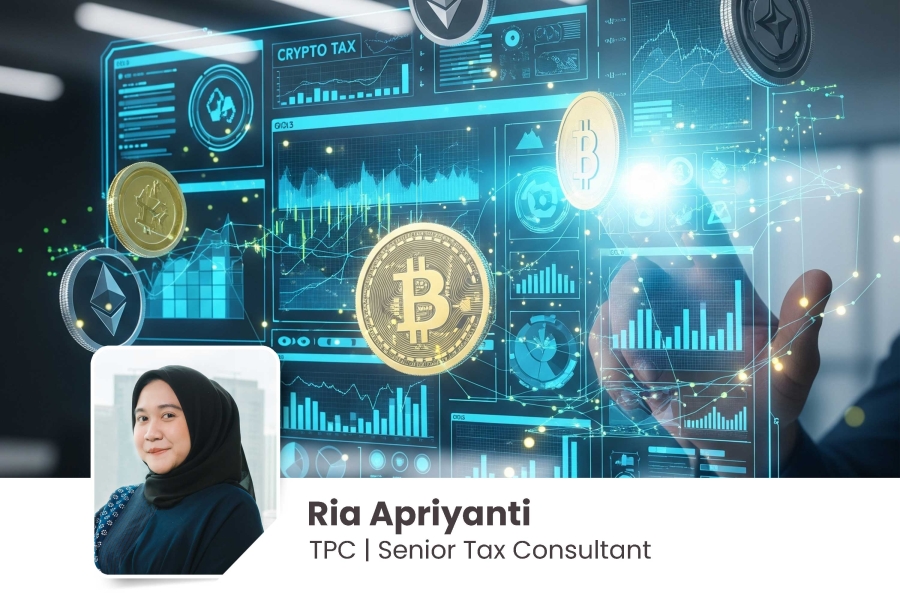
Hello, I am Ria Apriyanti, a Tax Consultant at Taxindo Prime Consulting.
Recently, many people have been asking about the latest crypto tax regulations, which took effect on August 1, 2025. I want to share my opinion so you can understand these important changes clearly and without a headache. Let's dive in and discuss this thoroughly so you can easily understand the new developments.
Starting August 1, 2025, Indonesia’s crypto tax rules have changed significantly. The government has eliminated VAT on crypto asset transactions on official platforms, equating crypto with VAT-exempt securities. The final income tax rate has also increased to 0.21%, but this actually makes the rules simpler and fairer. Furthermore, crypto supervision is now under the Financial Services Authority (OJK), no longer the Commodity Futures Trading Regulatory Agency (Bappebti). This is a sign that the government recognizes crypto as a financial instrument, not just a commodity.
Previously, VAT was imposed because crypto was seen as an intangible good, which made the tax burden heavy. Now, based on Article 2 of PMK 50/2025, the transfer of crypto assets is not subject to VAT because they are equated with securities. With the elimination of VAT on crypto asset transactions, businesses can be more confident operating legally within the country. As a result, the competitiveness of local platforms becomes stronger, and the potential for tax avoidance also decreases. However, it is important to remember that VAT is still imposed for the transfer of taxable services in the form of crypto asset transaction facilitation by Electronic System Providers and crypto asset transaction verification services by crypto miners.
Although the rate increased from the previous one (0.1% for registered traders and 0.2% for unregistered traders) to a single 0.21%, this unified final income tax rate simplifies tax administration because there is only one clear rate. Reporting becomes easier and does not burden small investors because the rate is still relatively low. This expands the tax base efficiently.
This confirms that crypto is a financial instrument that requires more holistic and professional supervision. The Financial Services Authority (OJK) has broader capabilities and experience than the Commodity Futures Trading Regulatory Agency (Bappebti) in regulating the financial sector, making crypto governance more transparent, trustworthy, and secure.
The country receives more optimal tax revenue from digital asset transactions. Meanwhile, business players and investors can operate in an ecosystem with clearer and more secure rules. This new regulation has also been well-received by industry players. The clarity of the tax rate, simplified administration, and the elimination of VAT make them more confident operating domestically. This condition is predicted to increase crypto transactions on official platforms and simultaneously prevent capital outflow. As a result, foreign investors will also see Indonesia as a more digital innovation-friendly jurisdiction.
In my view, the main challenges are consistent implementation of the regulation, public education to understand the new rules, adaptive supervision, and coordination among regulators and industry players so that the crypto ecosystem can grow in a healthy and controlled manner.
Overall, PMK 50/2025 is a strategic step by the government to create a more mature, transparent, and trustworthy crypto ecosystem. This regulation not only provides legal certainty for industry players but also ensures more optimal state revenue. With the transfer of supervision to the OJK and the adjustment to a simpler tax rate, this policy becomes an important foundation for the healthy and controlled growth of the crypto industry in Indonesia.